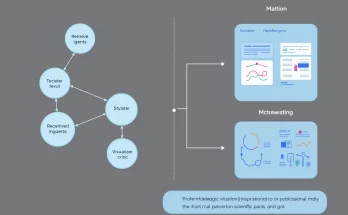A team of researchers from Shanghai Jiao Tong University and Zhejiang University has developed MemOS, the world’s first ‘memory operating system’ for artificial intelligence. This revolutionary system aims to resolve the fundamental limitations faced by traditional AI models regarding persistent memory and learning capabilities.
Understanding MemOS
MemOS treats memory as a core computational resource, similar to how traditional operating systems manage CPU and storage. According to the research published in July, MemOS has demonstrated significant performance gains, including a 159% improvement in temporal reasoning tasks compared to existing memory systems.
The Problem with Current AI Systems
Many current models suffer from what researchers refer to as the “memory silo” problem. This architectural limitation results in AI systems that cannot maintain coherent, long-term relationships with users. Each interaction often starts from scratch, frustrating users who expect consistency. For instance, an AI might forget a user’s preferences, such as dietary restrictions, between conversations.
How MemOS Addresses These Limitations
MemOS introduces a unique approach through the concept of “MemCubes”. These standardized memory units encapsulate various forms of information, enabling the system to evolve and migrate over time. This foundational change allows AI systems to exhibit persistent memory and better reasoning capabilities, greatly enhancing user experiences.
Performance Improvements with MemOS
- MemOS consistently outperformed established baselines, with a 38.98% improvement on the LOCOMO benchmark.
- It achieved a 94% reduction in time-to-first-token latency in certain configurations.
- MemOS ranks first in memory-intensive reasoning tasks, making significant strides in complex scenarios that require connection across multiple conversations.
Enterprise Applications and Business Impact
The implications of MemOS for enterprise AI deployment are transformational. Companies increasingly rely on AI for ongoing relationships with customers. MemOS enables “cross-platform memory migration”, allowing AI memories to be flexible and transferable across different platforms. This eliminates the frustration users experience when switching between tools.
Marketplace for Specialized Knowledge
MemOS opens doors for the concept of paid memory modules, allowing experts to package their knowledge into purchasable memory units. For example, a medical expert could encapsulate critical diagnostic heuristics that could be used by AI systems, democratizing access to specialized information and creating new economic opportunities.
Architectural Design and Technical Framework
The design of MemOS draws inspiration from conventional operating systems, employing a three-layer architecture:
- Interface Layer: For API calls.
- Operation Layer: For memory scheduling and lifecycle management.
- Infrastructure Layer: For storage and governance.
This innovative design allows for dynamic management of different memory types and enhances the overall efficiency of AI systems.
Open Source and Community Development
The development team has made MemOS open-source, facilitating rapid adoption and encouraging community contributions. By releasing the full code on platforms like GitHub, the researchers aim to accelerate the growth of the ecosystem and ensure the technology can be implemented widely across different applications.
In summary, MemOS represents a fundamental shift in how AI systems manage memory, moving from static and short-lived models towards dynamic, evolving systems. As AI continues to evolve, this breakthrough research suggests that architecture might be the key to unlocking new capabilities rather than simply scaling existing frameworks. MemOS could pave the way for AI systems that enhance user experience by building deeper relationships and providing richer insights.



